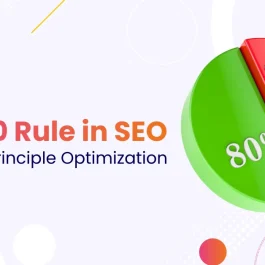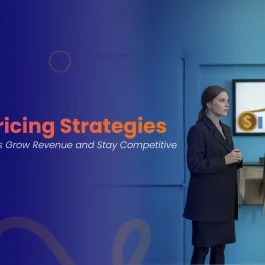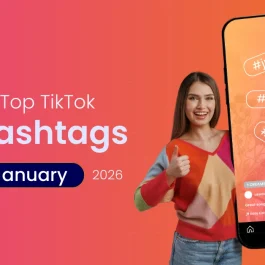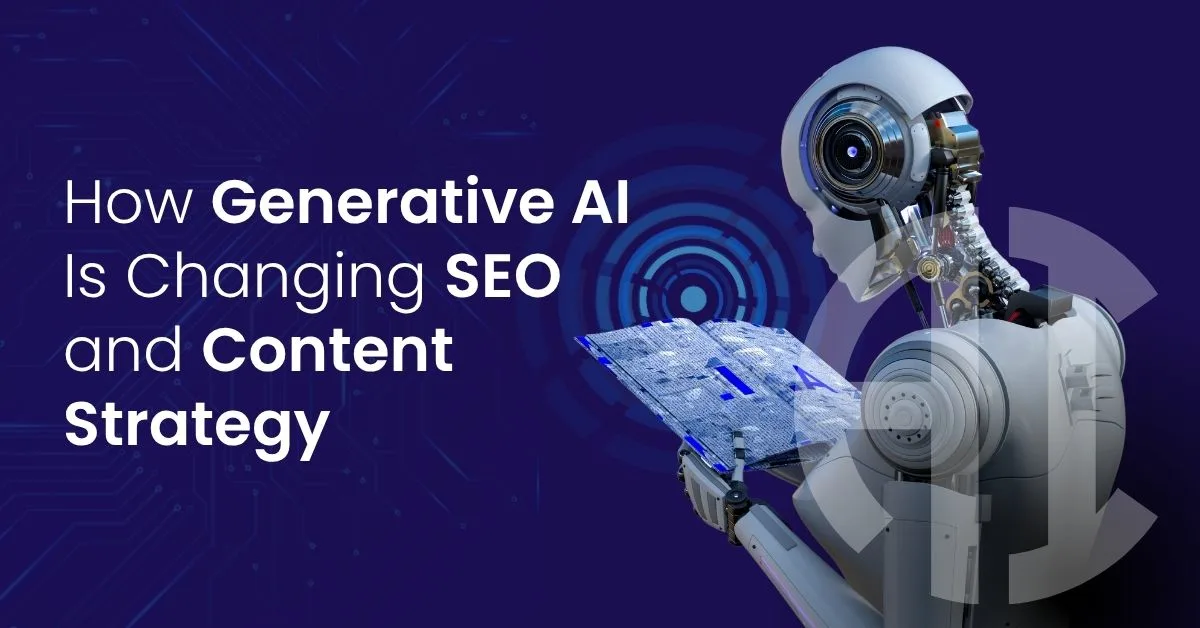7 min read
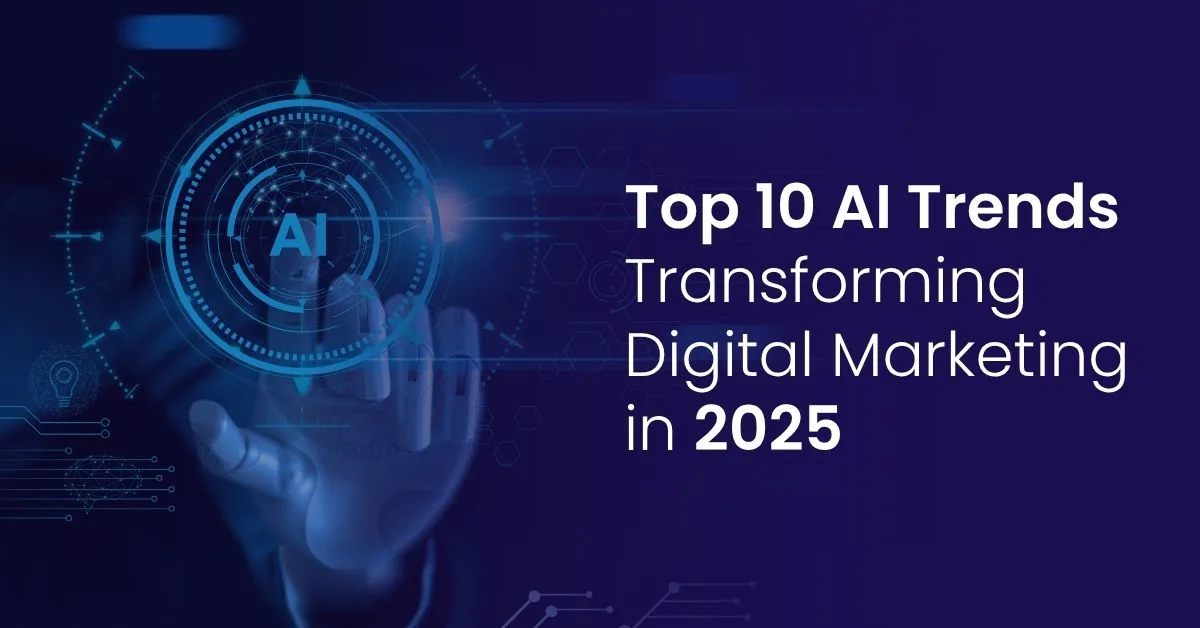
AI isn’t the future of marketing anymore—it’s the present engine powering growth.
AI is changing the way marketing works — fast.
What once started as a small experiment for writing ads or blog posts has now grown into a full ecosystem that’s transforming entire businesses. Today, AI helps brands work smarter. It takes care of repetitive tasks, tailors messages to each customer, and even predicts what people want before they do—all with amazing accuracy.
Simply put, AI has become the brain behind smarter marketing.
And the results speak for themselves. According to Salesforce, more than 63% of marketers now use AI every day, and those teams are growing their revenue almost twice as fast as companies that don’t.
AI isn’t just helping marketers work better—it’s redefining what great marketing looks like. In 2025, the question isn’t “Should we use AI?”—it’s “Are we using it well enough?”
Let’s explore the top 10 AI trends shaping how brands, agencies, and creators connect with their audiences—and how companies like Varun Digital are helping businesses adapt and lead.
Table of Contents
1. Agentic AI: From Assistant to Autonomous Marketer
In 2025, AI doesn’t just assist—it acts.
Agentic AI means smart systems that can plan, run, and improve marketing campaigns on their own. As AI models get stronger and more advanced, these systems are learning to work independently—making real-time decisions and adapting at scale with little human input.
Imagine an AI that:
- Analyzes your target audience
- Creates ad creatives
- Launches the campaign
- Tracks metrics in real time
- Optimizes based on results
According to Forrester, brands using agentic AI see up to 40% faster campaign deployment. One growth manager shared, “Our campaign setup time dropped from five days to four hours once we let AI handle the routine tasks.”
That’s the future of speed and scale.
2. Generative AI with Brand Guardrails
In 2023, AI wrote content. In 2025, it writes brand-accurate content—every word aligned with your tone, audience, and compliance needs.
Modern tools like ChatGPT Enterprise and Adobe Firefly now come with “brand voice locks.” Generative AI is quickly transforming how brands create and manage content. It helps teams produce consistent, on-brand messaging at scale—saving time while maintaining creativity. This ensures that, regardless of who’s prompting, every output remains consistent with the brand identity.
Gartner calls this “the rise of AI with creative control.” It’s automation without losing authenticity—a balance every brand, including Varun Digital’s clients, strives to master.
3. Real-Time Hyper-Personalization
No two customers are the same—and AI knows it.
AI powered by predictive analytics and first-party data helps brands connect with people on a deeper level. It lets businesses understand what customers need in the moment and deliver the right message, at the right time, in the most personal way. Everything—from website banners to emails—changes based on user behavior.
- A returning visitor might see a “Welcome back” message.
- A first-time buyer gets a discount code.
- A high-value customer sees tailored recommendations.
According to McKinsey, personalization drives 10–15% higher revenue for brands that get it right.
That’s personalization at scale.
4. AI-First Search and Zero-Click SEO
Search engines are evolving into answer engines. In 2025, users don’t just “Google” things—they ask AI systems to summarize, compare, and recommend. These capabilities are powered by advanced machine learning algorithms that enable AI to process and understand vast amounts of information efficiently.
This is where AEO (Answer Engine Optimization) becomes crucial. To appear in AI-generated summaries, content must:
- Use structured data (FAQ, How-To, Product schema)
- Provide direct, well-formatted answers
- Establish brand credibility with consistent signals
According to Search Engine Journal, 65% of users now get answers directly from AI summaries without clicking a single link. That’s why marketers are shifting from “ranking” to “visibility inside AI results.”
5. AI-Driven Media Buying and Creative Testing
In traditional marketing, testing multiple ad creatives was time-consuming. Now, AI does it while you sleep.
AI media buying platforms:
- Choose audiences automatically
- Rotate and optimize creatives
- Pause underperforming ads in real time
The growing versatility and strategic importance of AI tools enable these platforms to automate and optimize media buying processes, driving better results through advanced data analysis and autonomous decision-making.
Google Ads and Meta Advantage+ are already leveraging AI for smarter ad placement. According to MarTech Org, agencies report 30% higher ROAS when using AI-driven bidding combined with creative optimization.
Tip: Use AI to generate ad variations, but always review for brand tone and relevance before publishing.
6. First-Party Data and AI Audience Building
With cookies disappearing, marketers are doubling down on first-party data—data collected directly from customers. AI now makes this data actionable.
AI models cluster similar audiences, predict churn, and even personalize emails or product offers. Access to new data further enhances the accuracy and effectiveness of AI-driven audience segmentation, ensuring models remain relevant and avoid degradation.
According to Deloitte, 68% of businesses using AI for audience segmentation saw a 20% rise in customer retention. It’s proof that in 2025, owning your data isn’t just smart—it’s survival.
7. AI Chat, Voice, and Commerce Agents
Customer journeys are now chat-driven. AI voice and chat agents handle everything—from pre-sales inquiries to post-purchase support. These systems can operate with minimal human intervention, providing instant and adaptive support.
- On websites: “Show me products under $100.”
- On WhatsApp: “Track my order.”
- On calls: “Upgrade my plan.”
Salesforce reports that 85% of service interactions are now AI-assisted. A social commerce founder shared, “Our AI chatbot closed 19% more sales than humans—because it replied instantly, even at midnight.”
At Varun Digital, we see this shift daily—smart AI touchpoints driving engagement 24/7.
8. AI Attribution and ROI Transparency
Marketing leaders now demand one thing: proof.
AI analytics tools merge data from multiple channels—ads, social, web, and email—and explain what actually drives conversions. AI’s growing influence is evident in its ability to provide transparent and actionable marketing insights, making it easier for teams to understand and optimize their strategies.
AI helps answer questions like
- “Which blog converted the most leads?”
- “Which campaign brought the highest ROI?”
- “Where did we lose engagement?”
According to HubSpot, teams using AI attribution models have seen 35% higher marketing efficiency. The era of “we think this worked” is officially over.
9. AI-Powered Creative and Video Content
Short-form video continues to dominate—but brands don’t always have time for production. AI now creates videos, scripts, and voiceovers faster than ever.
You can feed an AI tool your brand story, and it generates:
- A 15-second ad for Instagram
- A 30-second explainer for YouTube
- A script for influencer UGC videos
Canva, Runway, and Pika Labs are already being used by agencies to produce thousands of videos weekly. Marketers using AI video tools are saving up to 80% of production time.(MarTech Org)
AI is not replacing creativity—it’s supercharging it.
10. AI Trust, Compliance, and Authenticity
As AI grows, so does the need for responsibility.
Consumers are becoming more aware of AI-generated content, and regulators are catching up fast. That means transparency, fact-checking, and consent are non-negotiable. In regulated industries like finance and healthcare, organizations face even stricter compliance requirements when using AI.
According to Forrester, 71% of customers expect brands to disclose when content is AI-generated. Businesses are introducing “AI approval layers”—where humans verify accuracy before publishing.
Brands that build trust through authenticity will stand out in this new AI era.
The Impact of Emerging Technologies on AI Marketing
The fusion of artificial intelligence with emerging technologies is setting the stage for a new era in digital marketing—one where innovation, speed, and intelligence are the norm. As AI adoption accelerates, business leaders are leveraging advanced AI models and generative AI to create hyper-personalized content, automate complex tasks, and deliver seamless customer experiences at scale.
One of the most important AI trends shaping marketing today is the rise of agentic AI. These intelligent systems go beyond simple automation, empowering AI agents to autonomously plan and execute multistep workflows—freeing up human teams to focus on strategy and creativity. With the ability to analyze vast amounts of unstructured data, these AI-powered solutions are transforming how brands engage with their audiences and drive business forward.
The integration of AI with other emerging technologies, such as edge computing and the Internet of Things (IoT), is unlocking even greater potential. Imagine AI systems that optimize campaigns in real time based on data from smart devices, or autonomous vehicles that deliver personalized ads on the go. On construction sites, intelligent systems powered by AI and IoT are boosting productivity and safety, while in the physical world, AI is enabling new value through energy efficiency and smarter resource management.
Behind the scenes, the development of generative AI models and foundation models relies on high-quality data—including synthetic training data—to ensure accuracy and robust model performance. As AI companies race to train generative AI models capable of tackling specialized tasks, the focus on data quality, reasoning models, and deep learning is more critical than ever. Industry leaders are investing in innovative solutions to address these critical challenges, ensuring that AI systems are reliable, fair, and secure.
The impact of AI extends far beyond marketing. In material science, AI is accelerating the discovery of new materials with enhanced properties. In healthcare, AI-driven drug discovery is speeding up the development of life-saving treatments. Generative AI is revolutionizing image generation and content creation, while language models and frontier models are powering everything from virtual assistants to immersive virtual worlds.
As the AI revolution continues, private investment in AI companies is surging, with industry leaders recognizing the transformative impact of AI-powered platforms and tools. However, this rapid growth also brings new risks—geopolitical risk, privacy concerns, and the need for ethical AI development are top of mind for business leaders and regulators alike. Transparency, accountability, and a commitment to responsible AI are essential for building trust and ensuring long-term success.
To stay ahead in this rapidly evolving landscape, businesses must keep pace with the latest trends in AI and emerging technologies. This means staying informed through news articles and research, investing in cutting-edge AI products, and building a technology stack that can adapt to new challenges and opportunities. Whether it’s deploying autonomous systems, leveraging synthetic data for model training, or exploring the possibilities of agentic AI, the future belongs to those who embrace the AI revolution and harness its power to drive growth, innovation, and new value.
In 2025 and beyond, the convergence of AI and emerging technologies will continue to redefine what’s possible in marketing and beyond. The businesses that thrive will be those that not only adopt AI-powered solutions but also lead with vision, responsibility, and a relentless drive for innovation.
Bringing It All Together
AI is no longer just a marketing tool—it’s a marketing mindset. Staying ahead of technology trends and this year’s trends is crucial for marketers to remain competitive and leverage the most impactful advancements.
From writing headlines to predicting user behavior, AI now touches every part of the funnel. Monitoring emerging trends in AI, such as predictive analytics, is essential to maximize benefits, mitigate risks, and ensure responsible implementation. But the secret isn’t using more AI — it’s using it smarter.
Varun Digital helps brands implement AI responsibly—blending automation with strategy, creativity with compliance, and insight with impact.
Because the best marketing in 2025 won’t be about algorithms—it’ll be about AI with empathy.
Key Takeaway Table
| S.NO | Major Shift | What It Means for SEO & Content Strategy |
| 1 | AI-Generated & Human-Refined Content | Faster content production + brand-safe tone |
| 2 | Intent-First Content Creation Using AI Insights | Content aligned with user journey & search intent |
| 3 | Content Structure for AI & Search Engines | Schema, structured data, machine-readable formats |
| 4 | Automated Topic & Keyword Discovery | AI mines long-tail, emerging trends at scale |
| 5 | Multilingual & Localized Content at Scale | Global reach with brand-consistent voice |
| 6 | Personalized Content Streams | Individual user experiences, not just one-size blogs |
| 7 | Voice & Conversational SEO | AI assistants changing how search works—optimize for query vs. keyword |
| 8 | Rapid Content Refresh & Optimization | AI monitors performance + auto-suggests updates |
| 9 | Content Automation & Workflow Integration | CMS + AI + analytics create a continuous loop |
| 10 | Ethics, Trust & Authenticity in AI Content | Transparency, bias mitigation, human oversight |
Lead the AI Marketing Wave
Stay ahead as AI transforms consumer behavior, targeting, and campaign performance. Innovate faster. Win bigger.
Frequently Asked Questions
1. What is the biggest AI trend in digital marketing in 2025?
The rise of agentic AI — autonomous systems that plan, create, and optimize campaigns without constant supervision.
2. How does AI improve personalization?
AI uses real-time behavior and data to adapt content, offers, and messages for each user, leading to higher engagement and conversion.
3. Is AI changing SEO?
Yes. With AI-powered search results and zero-click answers, marketers must optimize for Answer Engines, not just traditional rankings.
4. Do small businesses need AI now?
Absolutely. Tools like HubSpot AI and Meta Advantage+ make automation and personalization affordable even for small teams.
5. How can AI improve ROI tracking?
AI attribution models analyze every touchpoint and reveal which campaigns truly impact conversions.
Published: November 7th, 2025
